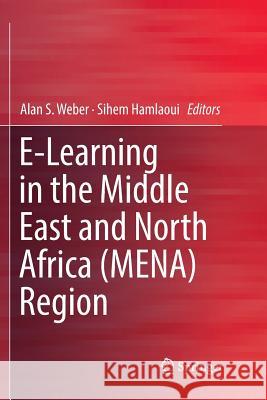E-Learning in the Middle East and North Africa (Mena) Region » książka
topmenu
E-Learning in the Middle East and North Africa (Mena) Region
ISBN-13: 9783030098605 / Angielski / Miękka / 2019 / 507 str.
Kategorie:
Kategorie BISAC:
Wydawca:
Springer
Język:
Angielski
ISBN-13:
9783030098605
Rok wydania:
2019
Wydanie:
Softcover Repri
Ilość stron:
507
Waga:
0.72 kg
Wymiary:
23.39 x 15.6 x 2.67
Oprawa:
Miękka
Wolumenów:
01
Dodatkowe informacje:
Wydanie ilustrowane











